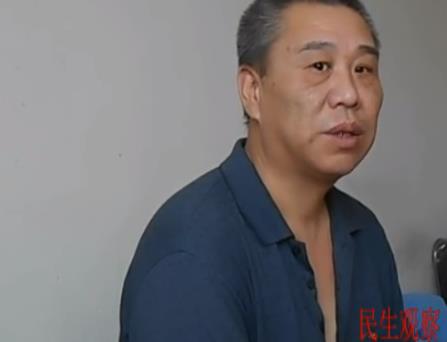UN Working Group Finds China’s Psychiatric Detention of Petitioner “Arbitrary”
Comments Off on UN Working Group Finds China’s Psychiatric Detention of Petitioner “Arbitrary”
Chinese Government Must Free Xing Shiku & Provide Compensation
(Network of Chinese Human Rights Defenders – July 21, 2014) – CHRD welcomes the opinion adopted by the UN Working Group on Arbitrary Detention (WGAD) that the lengthy detention of petitioner Mr. Xing Shiku (邢世库) in a psychiatric hospital has been “arbitrary.” In its opinion issued on May 20, the Working Group calls for Xing’s release and requests the Chinese government “grant him compensation for the harm he has suffered for the period of his arbitrary detention.” The UN body declared that the deprivation of Xing’s liberty by Chinese authorities violates Articles 9 and 19 of the Universal Declaration of Human Rights. A panel of five independent human rights experts came to its ruling during the Working Group’s 69th session, held between April 22 and May 1, 2014.
Since February 2007, Mr. Xing has been involuntarily committed to the Daowai District Psychiatric Hospital in Harbin, Heilongjiang Province. Police seized Xing while he was petitioning in Beijing about corruption and the privatization of a state-owned company where he once worked. He was forcibly returned to Harbin, where he was immediately committed to the psychiatric hospital on the order of the Office of Letters and Visits of the Daowai District Government. Xing has remained there despite his family’s repeated efforts to obtain his release.
“WGAD is sending a clear message that involuntary psychiatric detention violates basic human rights,” said Renee Xia, CHRD’s international director. “Forced psychiatric commitment of individuals for peacefully expressing their views remains a serious problem in China today.”

Xing Shiku (邢世库) pictured in 2012 at the psychiatric facility in Heilongjiang Province where he has been involuntarily confined for more than seven years.
In July 2013, CHRD appealed on behalf of Mr. Xing to WGAD and other UN Special Procedures, which led the Working Group’s inquiries with the Chinese government about Xing’s detention. The government responded by denying his detention as being involuntary and instead cited the family’s irresponsibility in caring for Xing. With the assistance of human rights activists inside China, CHRD obtained further information and refuted the government’s claims. The Working Group ruled that the government did not present facts that showed Xing was a “threat to other persons or their property,” a standard required by China’s Mental Health Law for committing someone to a psychiatric facility. WGAD pointed out that Xing has been “deprived of his liberty for more than seven years because of the peaceful expression of his views and filing complaints to government authorities,” and declared that “psychiatric detention shall not be used to jeopardize someone’s freedom of expression.”
In addition, WGAD has referred the cases of Mr. Xing and his wife Zhao Guirong (赵桂荣) to the Special Rapporteur on Torture for consideration for investigation. According to information CHRD received, Xing reportedly has suffered torture and mistreatment during his years of confinement, having been tied up with chains and struck on his head with electric pricks. Xing has also not received proper medical treatment for health issues, including problems with his legs and other illnesses, caused by his extended detention and abuse. Ms. Zhao has been illegally locked up in black jails for more than 300 days in total in retaliation for complaining to authorities about her husband’s detention. She was also tortured while detained and, unable to bear such mistreatment, reportedly attempted to commit suicide several times.
The Chinese government has an obligation, as a member of the Human Rights Council, to honor its own pledge to “promote and protect human rights,” and to take actions in accordance with the WGAD’s ruling by freeing Mr. Xing and all others who are involuntarily committed to psychiatric facilities for peaceful expression. The government must also provide them with compensation for the harm they have suffered in detention.
CHRD documented many individual cases of involuntary psychiatric commitment in China in a 2012 report, “The Darkest Corners: Abuses of Involuntary Psychiatric Commitment in China.”
China’s Mental Health Law, which went into effect in May 2013, allows for involuntary commitment, and assumes that those committed to a psychiatric facility have no legal capacity. They are assigned “guardians” without legal procedures. The law provides them with insufficient access to justice and restricts their right to communication.
“To close the loophole of arbitrary detention in psychiatric facilities, China must revise its Mental Health Law to comply with the UN Convention on the Rights of Persons with Disabilities, which China has ratified,” said Renee Xia.
For more information, contact:
Renee Xia, International Director (Mandarin, English), +1 240 374 8937, reneexia@chrdnet.com
Victor Clemens, Research Coordinator (English), +1 209 643 0539, victorclemens@chrdnet.com
Bai Lu, UN Program Coordinator (Mandarin, English),+852 5930 7122 blwhitedews@chrdnet.com
Follow us on Twitter: @chrdnet
